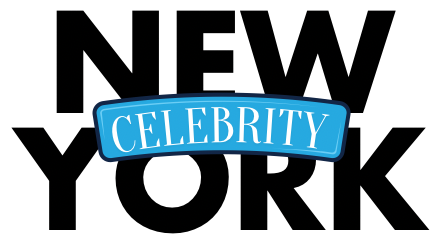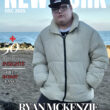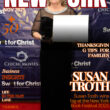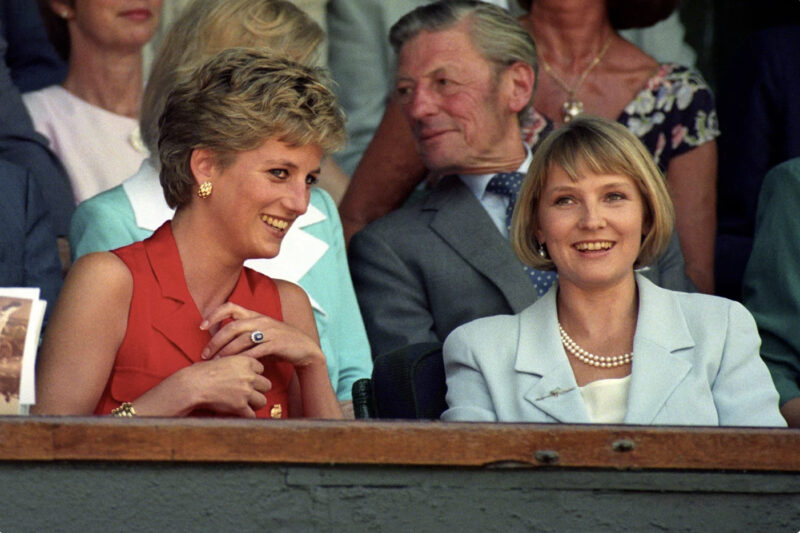A surge in stress levels seems inevitable when relatives and other houseguests visit for the holidays, and long-dormant pressures can emerge.
So there is aid nearby!
Every Family Has A Story, a new book by best-selling psychologist Julia Samuel, will be available on November 15. It offers guidance in the form of 12 “touchstones” to help deal with future problems.
Samuel, a close friend of the late Princess Diana and godmother to Prince George, age 9, claims that this year may be even more difficult for many people. In addition to COVID’s two years of largely restricting holiday time, which increased the desire for reunion, this year’s constraints include a squeeze on household budgets and the continuous stress of the tense political climate.
Difference is frequently very challenging to navigate, according to Samuel. “Allowing for difference is one of my guiding principles. There may be a lot of control freakery over the details, as evidenced by the frequent arguments about the length of time the turkey should be cooked or the order in which everything should be done. Therefore, one of the questions to ask yourself before Thanksgiving is, “What are landmines that I know usually occur? “
Is it because nothing gets prepared after my mother-in-law gets drunk at seven o’clock? Or does my brother constantly bully my other brother? So perhaps chat to your spouse or children about what you can do this year that you would do differently so that you don’t pile on and toss another bomb into the already chaotic scene, she advises.
Additionally, if problems do arise, “take a breath, get a glass of water, or physically take yourself out perhaps for a walk because when we’re in a heightened condition, we have no impulse control.” Then everything escalates and the laundry list of prior injuries, “every year you always,” is played out. Then we say the words that you can’t take back.
How to “fix after a conflict,” as Samuel puts it, is a second helpful skill. The fight probably wasn’t caused by the way you put the plate in the dishwasher. Feeling unappreciated, do you? Whatever it is, if you can identify it, you can fix it since those moments are frequently chances to fix what keeps hurting and triggering.
She claims that the suggestions apply to both the tourist and the host.
The second thing to keep in mind, according to her, is that our brains have a specific area dedicated to spatial awareness. So, even if you’re 45 years old, the chairman of a successful company, a well-known singer, or unemployed, when you return to your home and your family of origin, your entire body recalls.
“The location’s look, sound, and tone of voice transport you back to your childhood of five years old. When you are at home, you are extremely different from that version of yourself, therefore you may start acting in a rebellious manner akin to that of a teenager.
It’s the same for the parents, Samuel continues, adding that she will be hosting her four children and nine grandchildren for Christmas at her London home. Those who are hosting suddenly start acting more bossier without realising that their kids are 50 or anything.
It’s about “recognising that, becoming more cognizant of what you are likely to want to say, and then asking yourself, ‘Is it what I truly want to say?,'” according to her.
Every Family Has a Story, Samuel’s latest book, is based on her conversations with a range of families spanning several generations. Eight families’ stories are featured in her book, with each one focusing on a different stressor or trauma. The transgenerational patterns and the effects of numerous generations on each member of the family were what she truly wanted to express, she tells PEOPLE. “And that’s how you learn how to deal with challenges, as well as the unhealthy coping mechanisms that can make challenges worse. And that those recurring patterns are indeed passed down down the generations.
Every client who comes through my door spends some time discussing their family, including their immediate and extended families as well as their family of origin, she continues. The study confirms what each of us already knows: families are truly important, and when we can rely on them, feel confident in them, and go to them for support in good times and bad, they form the foundation of our lives and help us endure a variety of incredibly traumatic experiences.
“There is no such thing as a perfect family. Families exist on a spectrum between dysfunction and function, you know, depending on the demands from the outside world and your own inner experiences. Everybody’s individual capacity and resilience is reduced at certain points in their lives, and I think that this is one of them right now given everything that is happening in the world and the permacrisis that we are managing.
“I wanted to demonstrate how families are in actuality under certain difficulties. As a result, everyone reading it would be able to identify the feelings, disagreements, and challenges, as well as what actually makes a difference. In order to access assistance for themselves and learn how to live with themselves in their families, one should use that as a starting point.
Samuel continually gains knowledge from her clientele. We can’t always get it perfect, and we’re going to make mistakes. It’s never too late to make up for a mistake, and I believe it was one of the main lessons that really stuck with me. You can actually go back and fix what went wrong and look for a method to mend the relationship by making a mistake.
Samuel nearly by mistake started out as a counsellor. She was the youngest of five children and the daughter of a Guinness family banker. In the 1980s, she worked as an interior designer until being chosen, by coincidence, to lead Birthright, a mother and baby charity (now called Wellbeing of Women). She had never heard of families losing children before being asked to attend a support group, which introduced her to the field of counselling. She has now worked for three decades in both her own private practise and the public health NHS. She was a founding trustee of Child Bereavement U.K. and at first had Princess Diana’s backing. In 2009, Prince William assumed the patronage, carrying on the work of his late mother.
Samuel recently turned to her own family to participate in a new collaboration: a podcast with two of her four children, Emily and Sophie, who are also therapists. Samuel interviews renowned people on the Therapy Works podcast, including Richard E. Grant and Minnie Driver, as well as regular clients. After that, Emily and Sophie join her to discuss the key topics that emerged.
She exclaims, “I’ve been blown away by how amazing they are. They have knowledge and insight that I lack, and they perceive things very differently from me. To maintain our ability to be parents, daughters, and grandmothers, we don’t really discuss it outside of the sessions. As a result, we set a boundary with that time each week when we meet. It has truly been a pleasure.
She has gained knowledge from them. “Young folks view things quite differently. I am a product of my era. I was raised the way I was when I was 63 years old. I’ve trained, I continue to train, I learn new things, and I read a lot, but I’m still a white woman, 63, you know? They are also young folks with an intriguing and refreshing perspective on the world.











